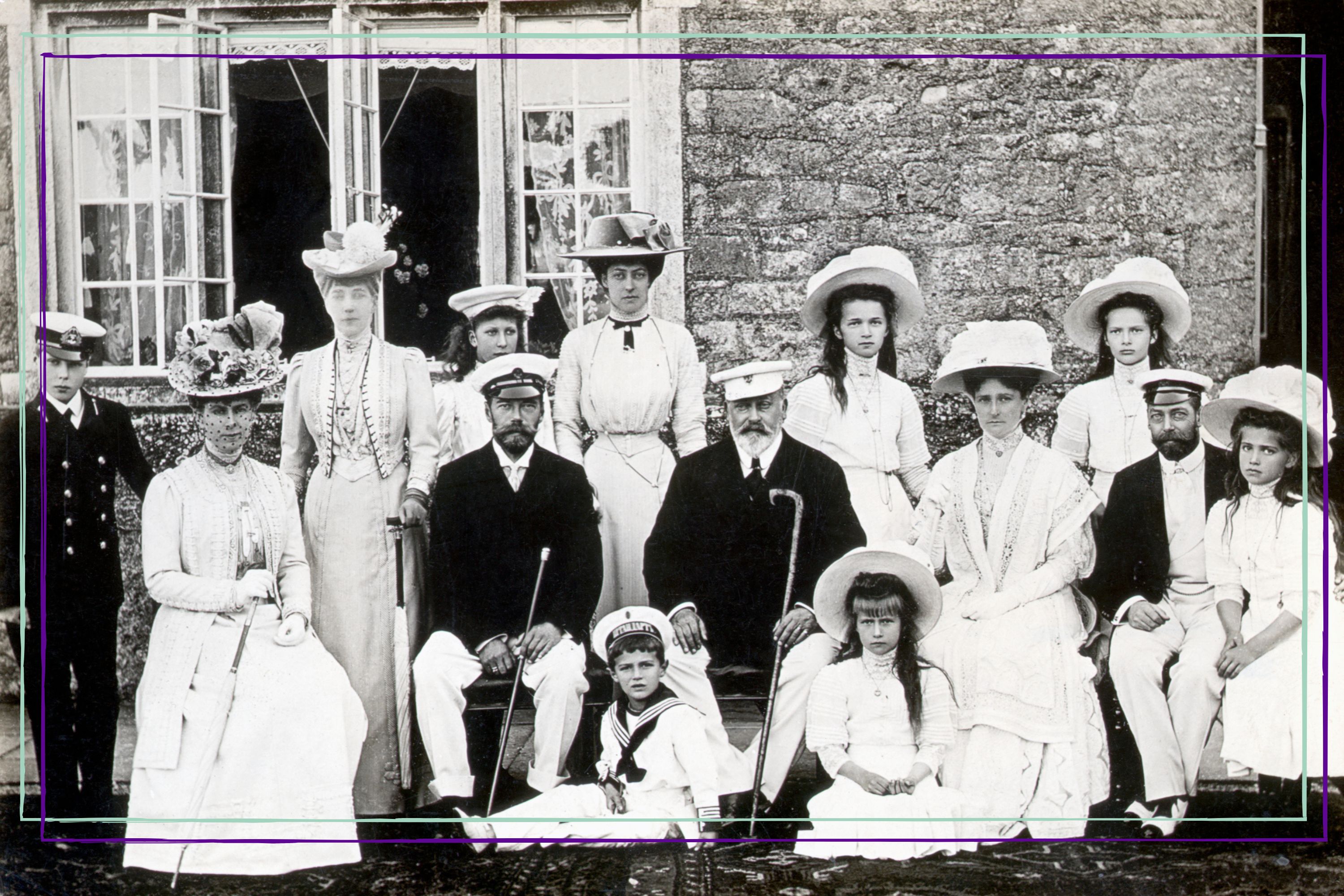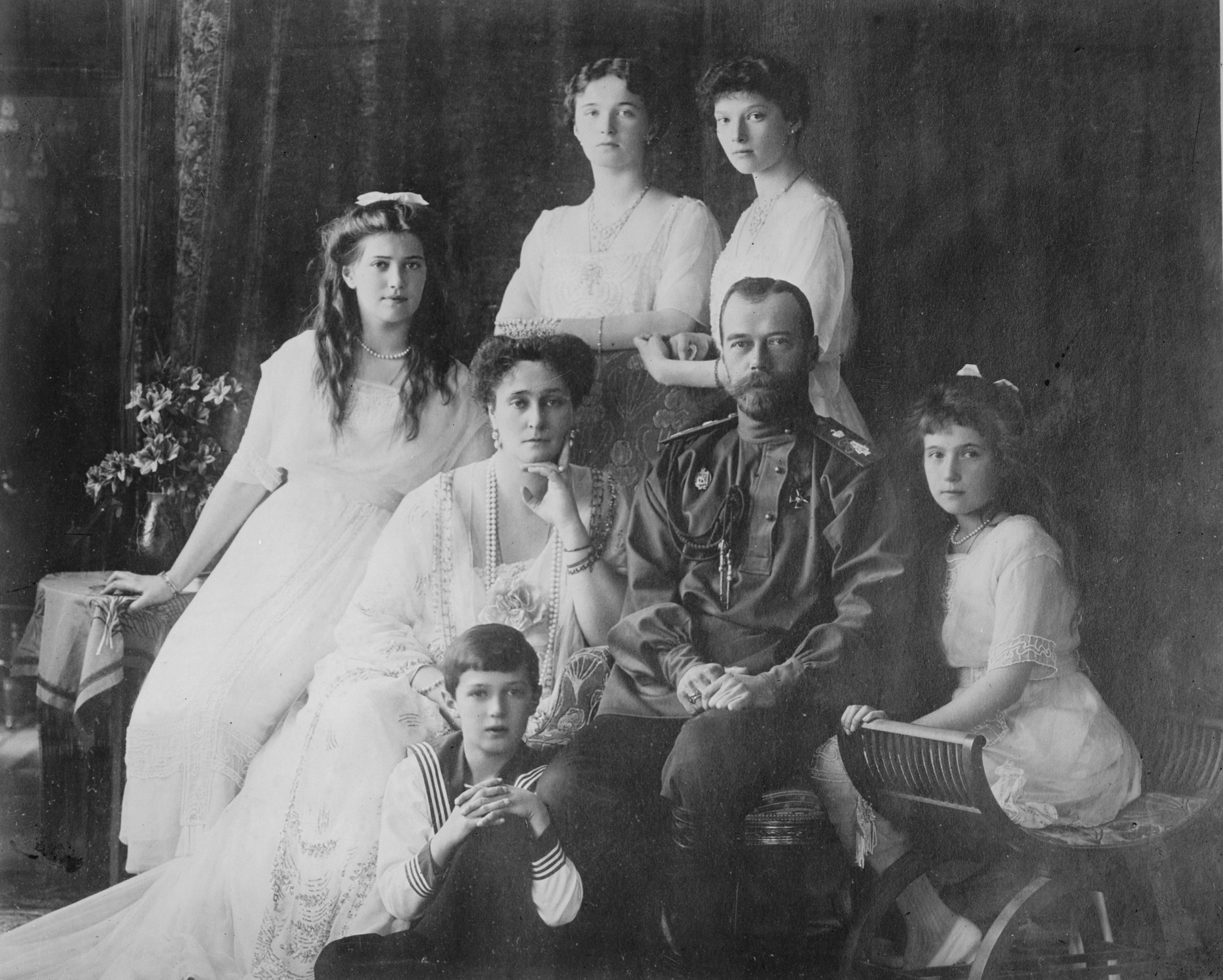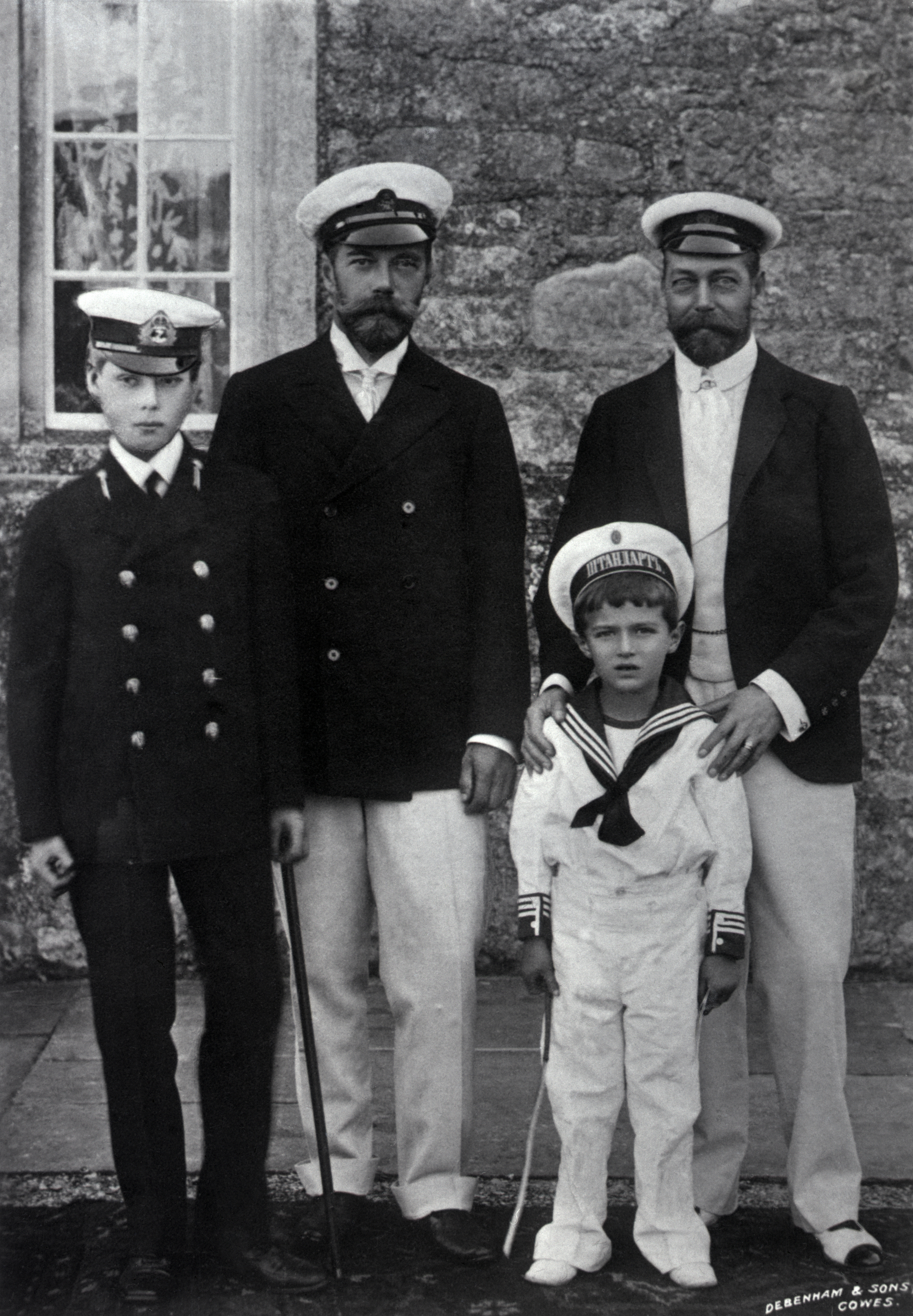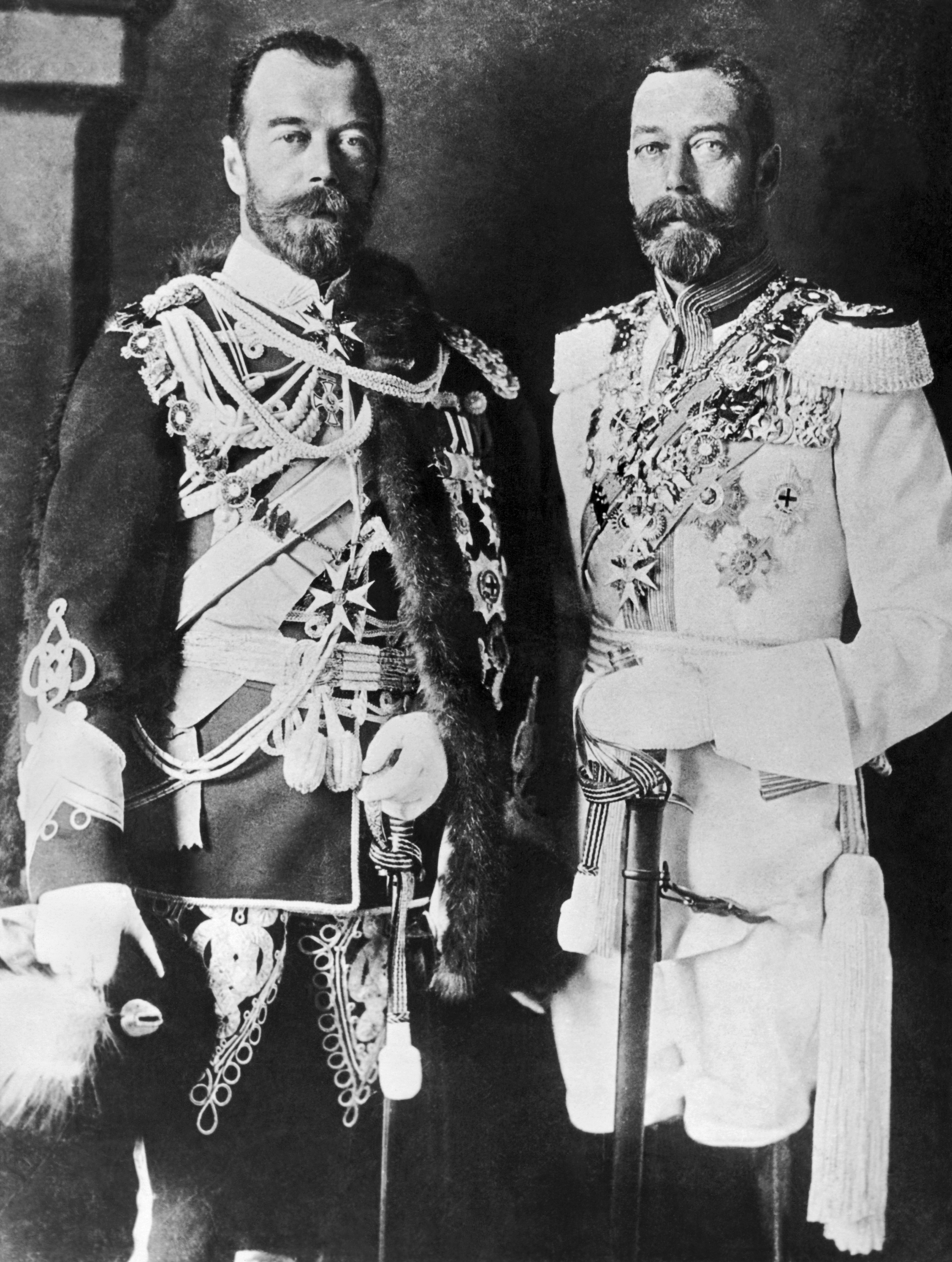The Crown Season 5: What really happened between the British Royal Family and the Romanovs?
Did King George V really betray the Tsar and the Russian imperial family?

Unlike most of The Crown’s fifth season, the show's sixth episode does not take place in the 1990s. Instead, the episode flashes back to World War I–era Britain, sharing the story of The Queen's grandfather, King George V, and his relationship with the Romanov family who met their tragic end during Russian Revolution. The sad story of the Romanovs left many viewers wondering what really happened between them and the British Royal Family - with the question on everyone's lips being 'did King George V really betray the Tsar?'
Who were the Romanovs?
The Romanov family were the reigning imperial house of Russia, known as The House of Romanov, between the years 1617 to 1917. During the years covered on The Crown, which focuses on the World War I–era, the household was headed by Tsar Nicholas II, the Emperor of Russia.
Nicholas married one of Queen Victoria's favourite granddaughters, Alexandra Feodorovna, also known as Princess Alix of Hesse, in 1894. Together the pair had five children; Olga, Tatiana, Maria, Anastasia, and Alexei.

What happened to the Romanovs?
In 1918, during the Russian Revolution, the Bolsheviks, a far-left revolutionary party that went on to become the ruling party in the Soviet Union, killed the entire Romanov family. In 1905, after state soldiers opened fire on the crowd of a workers’ march, killing 92 people in what would become the catalyst for the Russian Revolution, Tsar Nicholas’ popularity declined steeply.
Over the next decade, the Russian people continued to grow resentful at the imperial family, believing they were too far removed from the population's daily lives.
Unrest fuelled by the estimated 1.7m Russian deaths caused by World War I, the soaring price of goods and supply issues caused by a severe winter, culminated in mass protests and, eventually, Nicholas was forced to abdicate, with the Tsar doing so on the 2nd March, 1917.
While the Tsar named his brother, Grand Duke Michael, as the next Emperor, Michael declined to accept the throne and three centuries of the imperial Russian dynasty came to an end.
GoodtoKnow Newsletter
Parenting advice, hot topics, best buys and family finance tips delivered straight to your inbox.
Nicholas' abdication did nothing to quell the anger felt by certain Russian citizens and the Romanov family ended up imprisoned in the Ipatiev House. On the 16th of July 1918, the entire family were woken up in the middle of the night, walked to the Ipateiv House's cellar and were killed by the armed Bolsheviks.

How were the British Royal Family related to the Romanovs?
Tsar Nicholas II was King George V's maternal cousin. The then King's mother, Alexandra Princess of Wales, was the sister of Nicholas II's mother, Dagmar of Denmark. The cousins were known for looking uncannily alike and, throughout their lives, had a very close friendship.
In 1909, their families took a holiday together, visiting the Isle of Wight for the Cowes Regatta. A record of their great bond, Nicholas and George often wrote letters and telegrams to each other, referring to each other as “Nicky” and “Georgie.” In one 1917 letter, Nicholas wrote, “My dearest Georgie, I thank you so much for your kind long letter.”

Did King George V betray Tsar Nicholas II?
Prior to the violent deaths of the Romanov family, the UK withdrew a previous offer of asylum given to the Romanovs - but this had nothing to do with the relationship between Nicholas and King George. The King is often accused of abandoning the Romanovs and leading them to their deadly fate, with people saying that George himself withdrew the offer for asylum. But, according to History Extra, the King would never have been able to offer asylum at all, as this would fall to his government, not him.
In reality, Pavel Milyukov, the foreign minister of Russia’s then Provisional Government, pushed the British government to offer the family asylum. The British Government offered to host the Romanovs “for the duration of war only”, but this agreement was withdrawn within weeks of it being made.
The reason for withdrawing the offer is unclear, but it is likely that Nicholas II’s reputation as “Nicholas the Bloody,” fuelled by his killing of peaceful protesters in 1905, would anger the British public, many of whom supported the ideals of the Russian Revolution. The fact that Alexandra, the tsar’s wife, was German, the country the UK was then at war with, also didn't help.
The family were also refused asylum by Norway, Sweden, France and Switzerland, with Dr Helen Rappaport, a specialist in late Russian imperial history, calling them “a political hot potato that no government wished to handle in wartime.”
Despite reports that he abandoned his cousin and his family, King George did appear to regret not doing more to help save them. When he heard of the Romanovs’ execution, he wrote in his diary, “Those poor innocent children!” He also attended a memorial service in July 1918, following the announcement of Nicholas’ death.
Related articles:
- When did Charles and Diana separate and divorce?
- How old was Diana when she got married?
- Who is James Hewitt, is he married and does he have children?
- Where is Hasnat Khan now and why did he leave Princess Diana?
- Did Charles want the Queen to abdicate? Fact vs fiction in The Crown season 5
- Princess Diana's revenge dress
- Windsor Castle fire
- Princess Diana's Panorama interview
- Where was The Crown filmed? Season 1 - 5 filming locations
- Who is Princess Diana’s friend Dr. James Colthurst and who plays him in The Crown?
- The Crown Cast: Season 1 to season 5 actor guide and where you've seen them before
- The true story of the Royal Yacht Britannia from The Crown Season 5
- The Crown Season 5: What was in Princess Diana’s divorce settlement?
- Camillagate: The true story behind Charles and Camilla's leaked phone recording
- Prince Philip and Penny Knatchbull: Who is the Prince’s friend, and who plays her in The Crown season 5?
- How did Dodi meet Diana? Their relationship explained ahead of The Crown Season 5
- Where is Martin Bashir now - and why was the Princess Diana interview so controversial?
- When did King Charles marry Camilla Parker Bowles?
- How did Princess Diana know Imran Khan, and what happened to him?
- Reliving memories in Netflix’s new season of The Crown will be “incredibly hard" for Prince Harry and Prince William, claims royal expert
- Has Camilla, Queen Consort got children and who are her grandchildren?
Charlie Elizabeth Culverhouse is a news writer for Goodtoknow, specialising in family content. She began her freelance journalism career after graduating from Nottingham Trent University with an MA in Magazine Journalism, receiving an NCTJ diploma, and earning a First Class BA (Hons) in Journalism at the British and Irish Modern Music Institute. She has also worked with BBC Good Food and The Independent.